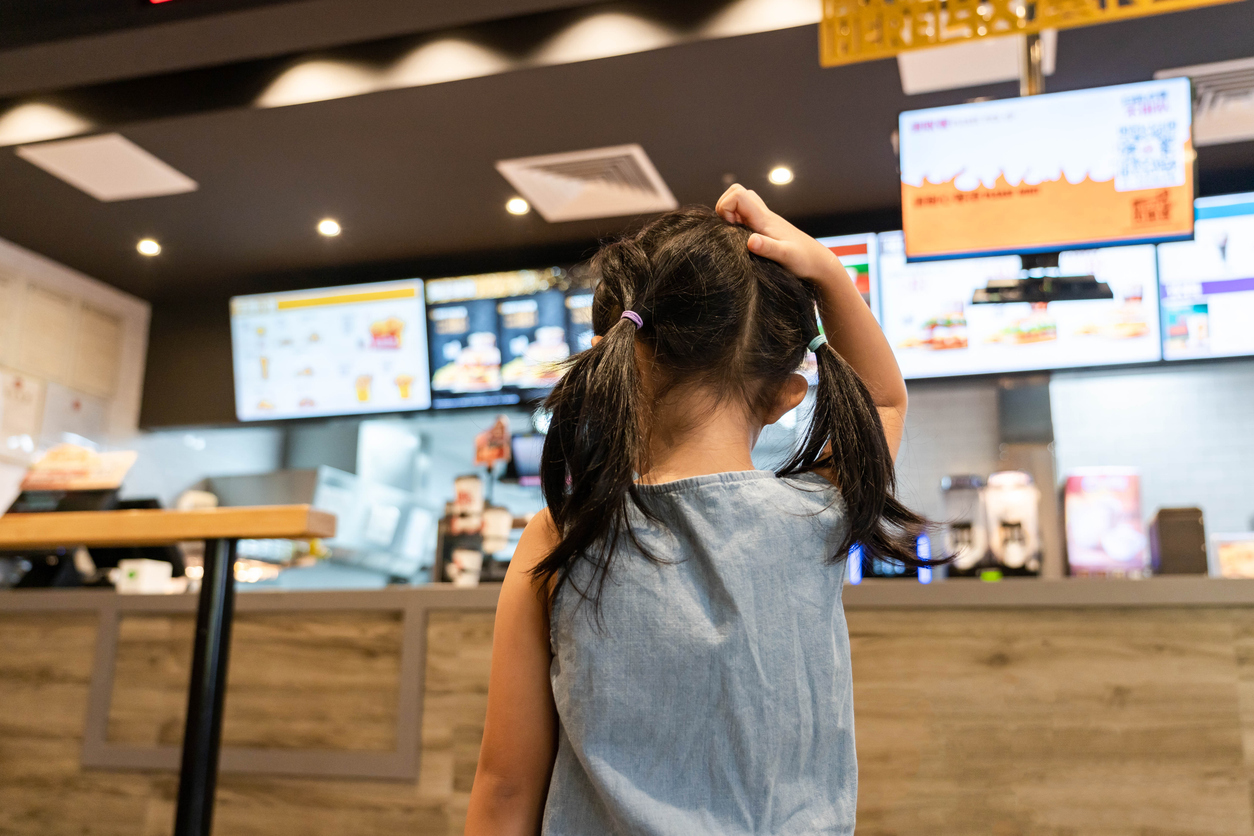Restaurants today face significant order management challenges, including maintaining accuracy, speeding up service, and ensuring customer satisfaction. Mistakes can lead to dissatisfied customers and lost revenue, while slow service can drive patrons away. By simplifying operations, AI enhances order-taking accuracy and minimizes wait times, ensuring that customers receive their meals quickly and correctly. This not only boosts efficiency but also elevates the overall dining experience.
Let’s explore how AI-driven order management transforms restaurant operations and discover its benefits to staff and customers!
What Is AI In Restaurant Order Management?
AI in restaurant order management refers to using artificial intelligence technologies to streamline and enhance the process of taking, processing, and delivering customer orders. AI-driven order management systems rely on advanced technologies like machine learning, large language models (LLMs), natural language processing (NLP), and chatbots to automate tasks and improve accuracy.
LLMs allows systems to adapt and optimize based on past data, predicting customer preferences and refining operations. NLP enables AI to understand and interpret human speech, making it easier for customers to place orders through voice-activated systems or chatbots.
Another vital component is chatbots, which assist with taking orders, answering customer inquiries, and managing reservations while reducing the need for human intervention. These AI technologies create a more efficient, accurate, and customer-friendly ordering process, helping restaurants deliver better service and reduce operational costs.
How Does AI Affect The Restaurant Industry?
AI significantly transforms the restaurant industry by streamlining operations and enhancing customer experiences. This includes smarter food production lines, improved quality control to ensure consistency, enhanced customer service through personalized interactions, and better supply chain management.
Smarter Production Lines
AI ensures faster, more consistent production, from smart ovens to robotic chefs. Automation allows for precise cooking times, portion control, and ingredient measurements, eliminating human error. This increases efficiency and consistency, allowing restaurants to serve higher-quality dishes at a faster pace. With AI, production lines operate seamlessly, ensuring that food is prepared uniformly, which boosts customer satisfaction and reduces kitchen workload.
Improved Quality Control
AI plays a crucial role in monitoring food quality and safety standards by detecting anomalies in food preparation, such as temperature inconsistencies or incorrect ingredient usage. Systems equipped with AI help ensure compliance with health regulations and maintain high safety standards. AI’s ability to track quality improves order accuracy, ensuring customers receive meals that meet regulatory standards and expectations. These technologies minimize risks and elevate the overall dining experience by guaranteeing food integrity.
Enhanced Customer Service
AI transforms customer service by creating personalized dining experiences through tailored recommendations and efficient interactions. Chatbots and AI-driven systems suggest dishes based on individual preferences, enhancing customer engagement. These technologies improve order accuracy and streamline ordering, reducing wait times and errors. The result is an enhanced customer experience, with diners receiving faster service and more personalized attention, making their visit more enjoyable and efficient.
Improved Restaurant Supply Chain Management
AI optimizes restaurant inventory management and supply chain logistics by predicting demand and adjusting orders accordingly. This reduces food waste, helps restaurants avoid stock shortages, and streamlines supplier relationships. AI’s forecasting capabilities ensure restaurants order the right ingredients, improving cost management and boosting profits. By optimizing menu costs, AI enables restaurants to balance quality and affordability while maintaining smooth operations and effective supply chain coordination.
AI-Powered Features Enhancing Restaurant Order Management
AI-powered features streamline restaurant order management by automating tasks, reducing human errors, and speeding up service. Technologies like chatbots, voice recognition, and LLMs ensure accurate orders and personalized experiences, ultimately boosting customer satisfaction and operational efficiency.
Voice Ordering Systems
Voice ordering systems revolutionize restaurant ordering by allowing customers to place orders using voice commands through voice-activated kiosks, mobile apps, and voice assistants such as Siri and Google Assistant. These systems enhance customer convenience by enabling faster ordering and reducing the need for human staff. Voice AI improves accuracy and efficiency, ensuring orders are correctly processed and minimizing misunderstandings. This technology streamlines operations, increasing customer satisfaction and smoother restaurant workflows.
Automated Chatbots
AI-driven chatbots play a vital role in assisting customers with their orders providing instant support on restaurant websites and apps. These chatbots can quickly answer queries, suggest menu items, and guide customers through ordering. Their 24/7 availability and multilingual support boost customer engagement, making dining experiences more accessible. During peak times, these manage high volumes of online orders, ensuring quick responses and efficient service and enhancing overall customer satisfaction.
Predictive Ordering
Predictive ordering is an AI feature that anticipates customer preferences by analyzing previous orders and trends and suggesting menu items tailored to individual tastes. This personalization leads to quicker ordering times, significantly improving customer satisfaction. AI-powered apps and platforms utilize data analytics to provide recommendations, reducing the cognitive load on customers when deciding what to order. By streamlining the decision-making process, predictive ordering enhances the overall dining experience, making it more enjoyable and efficient.
Dynamic Pricing Adjustments
AI analyzes real-time data, such as demand, stock levels, and trends, to implement dynamic restaurant pricing adjustments. This approach helps maximize revenue by offering promotions during off-peak hours or adjusting prices based on high demand. Customers benefit from timely deals and discounts, making dining more affordable and attractive. By utilizing dynamic pricing strategies, restaurants can enhance their profitability while providing customer value, fostering loyalty, and encouraging repeat visits.
AI In Order Management For Online And Offline Channels
AI in order management is essential for providing a seamless experience across online and offline channels. As customer expectations rise, integrating AI ensures smoother, more efficient operations, whether orders come from apps, websites, or in-person dining, ultimately boosting customer satisfaction and operational consistency.
Online Ordering Systems
With the rise of delivery apps and websites, online ordering has become a cornerstone of restaurant operations. A robust online ordering system enhances the customer experience by providing convenience, faster processing, and accurate orders. Integration with delivery services and multiple payment options ensures a seamless process. Restaurants can improve efficiency and maintain customer loyalty using user-friendly platforms that simplify ordering. These systems allow restaurants to cater to growing demand while delivering exceptional service.
In-House Ordering Systems
In-house systems like the POS (Point of Sale) manage walk-in orders, table reservations, and dine-in services. These tools help restaurants streamline communication between the kitchen and front-of-house staff, ensuring order accuracy and faster service. Features like customer data management, order tracking, and payment processing optimize operations. By using suitable systems, restaurants can reduce wait times and enhance service quality, improving customer satisfaction and smoother operations in a busy dining environment.
Challenges And Limitations Of AI In Restaurant Order Management
AI significantly enhances efficiency and customer experience in restaurant order management, such as faster service and accurate orders. However, challenges like high implementation costs, the need for constant updates, and reliance on technology over human interaction may pose limitations.
Cost Of AI Implementation
Integrating AI systems into restaurant operations requires significant financial investment. Due to hardware, software, and installation expenses, initial setup costs can be high depending on the solution. For instance, many restaurants find that the financial barrier to adopting advanced AI technology limits their ability to compete, making it crucial to assess long-term ROI when considering such systems for enhanced operational efficiency.
Training And Adaptation
The learning curve associated with AI systems can be steep for restaurant staff, necessitating comprehensive training for smooth adoption. Proper training ensures employees can effectively utilize new technologies, minimizing disruptions during the transition period. Restaurants may experience temporary declines in service speed and accuracy as staff adapt to new systems. Investing in training promotes the effective use of AI and boosts staff confidence, leading to more successful integration into daily operations.
Data Security
Safeguarding sensitive customer and operational data is paramount for restaurants utilizing AI systems. Data breaches can lead to severe consequences, including financial loss and damage to reputation. Implementing robust security measures, such as encryption and access controls, protects against potential threats. Additionally, compliance with data protection regulations ensures that customer information remains confidential. Prioritizing data security builds customer trust and strengthens the restaurant's operational integrity in a technology-driven environment.
Technical Support
Reliable technical support is crucial for running AI systems in restaurants. Issues can arise unexpectedly, disrupting operations and impacting customer service. Access to prompt and effective support allows restaurants to resolve technical problems quickly, minimizing downtime. Technical issues can lead to more support for staff and customers. Ensuring that a dependable technical support system is in place enhances operational efficiency and contributes to maintaining high service standards in the dining experience.
Will AI Replace Human Workers In Restaurants?
AI technology can streamline many restaurant operations, but more is needed to replace humans' unique roles that involve creativity and personal customer interaction. Staff members such as chefs, servers, and hosts create a welcoming atmosphere and provide personalized service that enhances the dining experience.
For instance, chefs infuse creativity into menu design and dish presentation, while servers build rapport with guests, understanding their preferences and addressing concerns with empathy. High-end dining establishments thrive on this human touch, where bespoke service and emotional connections create memorable experiences.
Rather than completely replacing human workers, AI can complement their roles by handling repetitive tasks, enabling staff to focus on customer engagement and creativity. This partnership enhances efficiency and maintains the warmth and personal touch that diners value. It proves that while AI can assist, it cannot replicate the irreplaceable aspects of human interaction in the restaurant industry.
Optimize Your Restaurant AI Operations With Checkmate
AI significantly enhances restaurant order management by improving efficiency, accuracy, and customer satisfaction. With automated advanced AI phone ordering and drive-thru solutions, restaurants can streamline operations, reduce errors, and deliver a seamless dining experience. We provide the tools and support needed to elevate your service and stay ahead in a competitive market.





